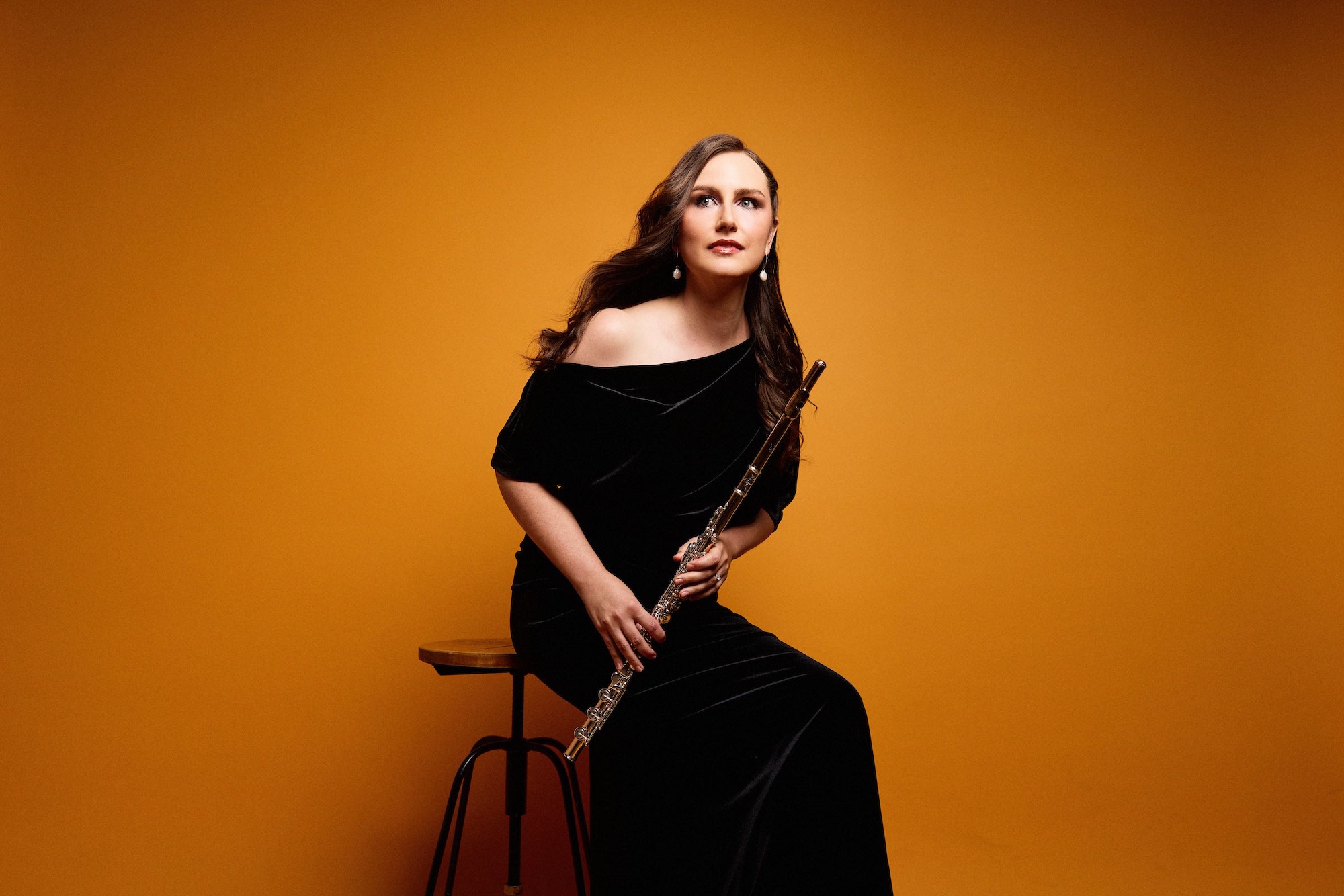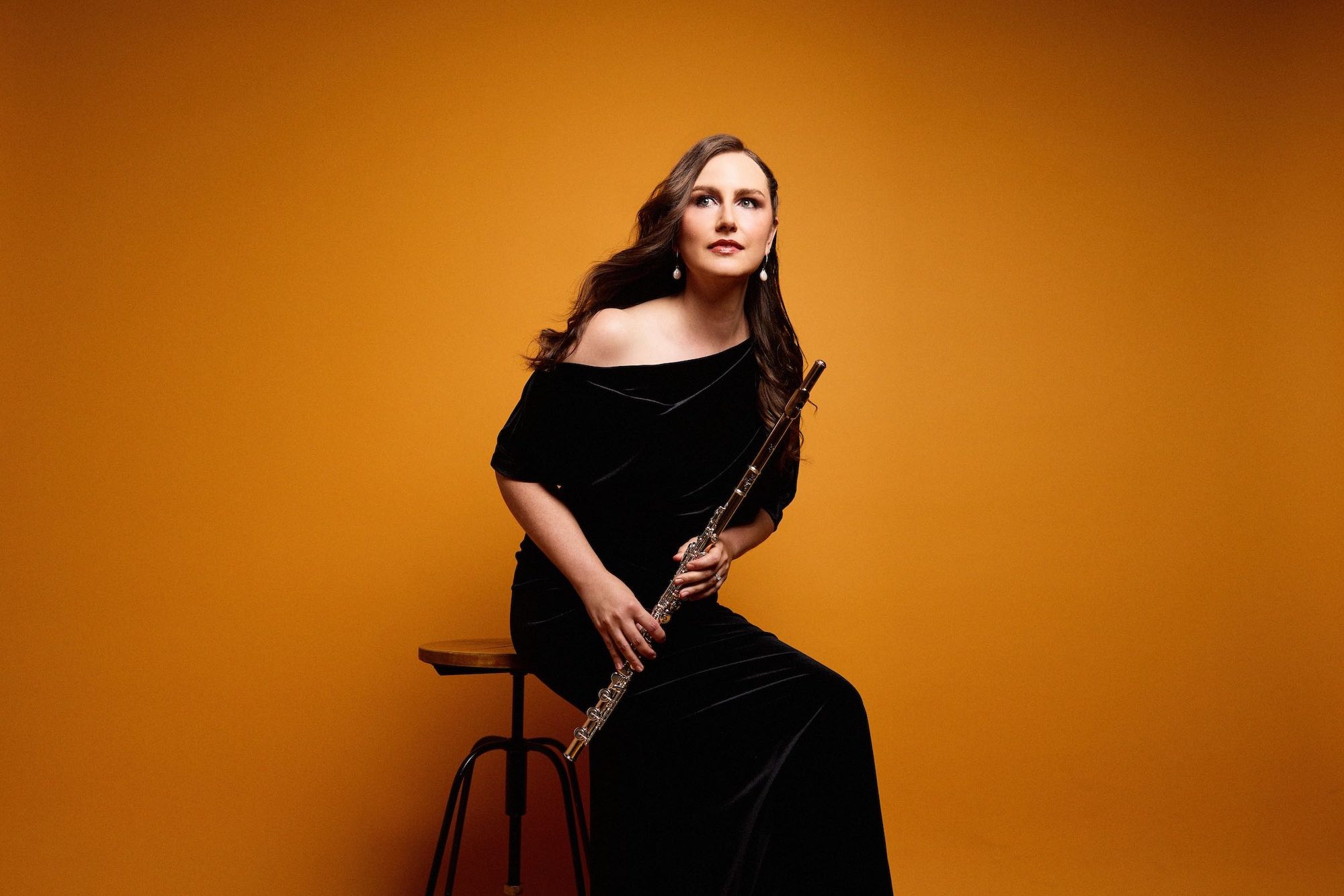
Help Make Future EXO Projects Possible
Your individual contributions will make future ground breaking projects come to life!
We are a 501 (c) 3 organization and all donations are tax-deductible to the fullest extent of the law.
American Counterpoints
Experiential Orchestra | Curtis Stewart | James Blachly
Music by Julia Perry, Coleridge-Taylor Perkinson, and Curtis Stewart
Including the World Premiere Recording of Julia Perry’s Concerto for Violin and Orchestra
About the Project
For our first recording following our 2021 Grammy® Award, Experiential Orchestra was granted exclusive permission to create the world premiere recording of Julia Perry’s Concerto for Violin and Orchestra (1963-68, rev. 1977), with six-time Grammy® nominee Curtis Stewart as soloist and Grammy®-winning Experiential Orchestra Music Director James Blachly as conductor. Surrounding the concerto are three other works by Julia Perry, all world premiere recordings, and two defining works by Coleridge-Taylor Perkinson; music by Curtis Stewart himself completes the disc. Grammy®-winning producer Blanton Alspaugh and Soundmirror will again produce and provide sound engineering, with a release of March 2024 on the Bright Shiny Things label.
The recording traces two common paths by excellent Black classical musicians in the 20th century: towards Europe (in the case of Julia Perry) and towards jazz and popular music (in the case of Coleridge-Taylor Perkinson). Curtis Stewart’s artistry is being recognized internationally for forging a unique path of creativity, bridging the divide between classical and improvised music, with narrative and hip hop uniquely intertwined with classical virtuosity.
Purpose
This recording aims to dramatically change the visibility and reputation of two extraordinary African American composers, bringing these works to a far greater prominence internationally, and to play a role in more frequent performances of their music throughout the world.
Undercelebrated

Julia Perry’s early career was filled with accomplishments and accolades. She spent two summers at the Berkshire Music Center, conducted and sang her own compositions throughout Europe, studied with Luigi Dallapiccola in Italy, and with Nadia Boulanger, won the Prix Fountainebleu and two Guggenheim Fellowships, and her Short Piece for Orchestra was performed by the New York Philharmonic in 1965. But tragically, many of her roughly 100 compositions remain unknown, and she died financially destitute and in poor health, with virtually no interest in her music either in America or abroad.
Listen to her Prelude for Piano, arranged for strings by Roger Zahab, in a live performance by EXO from October, 2021.
Julia Perry, Prelude for Strings
Complementing Perry's musical language are two works by Coleridge-Taylor Perkinson. Known as “Perky," Coleridge-Taylor Perkinson was said to have had a musical talent rivaled only by Leonard Bernstein. He played jazz piano with Max Roach, studied conducting at Berkshire Music Center, and was a prolific and accomplished composer. While he composed roughly 30 works in a classical idiom, the vast majority of his compositions were for film and television.

Timing
Julia Perry was born in March 1924; this recording was released in March 2024 to honor the centenary of her birth.
Why focus on the Perry Violin Concerto?
Perry composed more than 100 works, but more than half are lost. Her Violin Concerto was composed over five years, between 1963-68, but revised just months before her death in 1977; EXO, Curtis Stewart, and Blachly gave the world premiere of that revised version in December 2022. The concerto is completely unknown, and is, in Blachly’s words, a “masterpiece, that I believe should enter the core repertoire.” Experiential Orchestra’s Grammy® and Curtis Stewart’s three-time Grammy® nominations and his growing reputation ensures that the recording will be given strong international consideration.
EXO Music Director James Blachly says “The Julia Perry Violin Concerto is a vitally important work for our understanding of American classical music – it deserves to be a staple in concert halls around the world. Like all of Perry’s music, it has extraordinary compositional integrity, but it is also a compelling and rewarding piece for performers and audience alike, and I predict a steady rise in interest in not only this masterpiece, but the rest of her remarkable catalogue.”
Curtis Stewart says, “The music of Coleridge-Taylor Perkinson and Julia Perry is near and dear to me. The first time I heard of Perkinson was through a mentor, Ashley Horne, who knew "Perky" personally. We both ended up playing his solo work Louisiana Blues Strut on Stern Auditorium / Perelman Stage back to back in the program. He would tell me stories about his friend and share anecdotes and attitudes about music making. Julia Perry has occupied a mysterious space in my musical world for a while. For years, Jannina Norpoth from our ensemble PUBLIQuartet has been bringing works of hers, but we have been grappling with the quirks of her publishing (or lack thereof) and unable to perform much of what she originally wrote. These composers both capture the abstract, soulful, individualistic and grounded spirit of late 20th century American composition.”
Funding for the project comes from individuals (perhaps you!) and from a generous grant from Women's Philharmonic Advocacy and from the Sphinx Organization.


Presented By


presenting partners



Media partner

Additional support

The Julia Perry Centenary Celebration & Festival is supported, in part, by public funds from the New York City Department of Cultural Affairs in partnership with the City Council.
Permission to use this photograph of Julia Perry is granted by Talbott Music Library Special Collections and Westminster Choir College Archives (Julia Perry Collection), Rider University. Digital image, copyright 2021.
Festival Concerts
FEATURED COLLABORATORS

The world-première recording of “The Prison,” a choral symphony written in 1930 by the English composer Ethel Smyth, arrives as demands for a more representative, equitable canon are mounting. For too long, Smyth has been relegated to footnote status: an ardent suffragist who was jailed for her efforts and a prominent lesbian, she wrote what was, until 2016, the only work by a female composer to be staged at the Metropolitan Opera (“Der Wald,” in 1903). “The Prison” exerts a metaphysical gravity, not just because of the text by Henry Brewster but also because Smyth’s music calls to mind Brahms, Elgar, and even Mahler at their most visionary and searching. The conductor James Blachly elicits splendid work from the vocal soloists, Sarah Brailey and Dashon Burton, and from the Experiential Orchestra and Chorus.
READ FULL ARTICLE












































